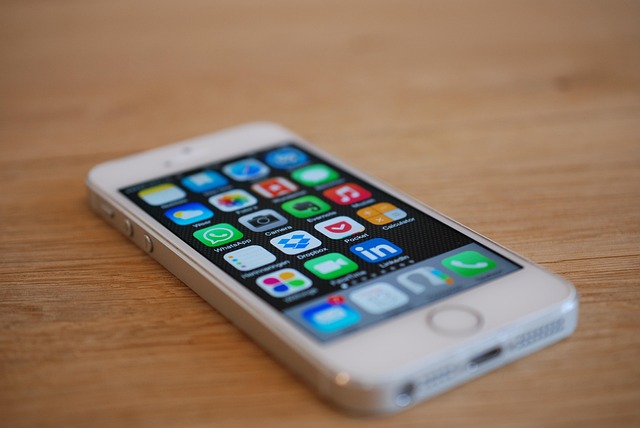Imagine waking up in the morning, checking your weather app to decide what to wear, then hopping onto your favorite social media platform to catch up on the latest news. As you commute to work, you might listen to a podcast or play a quick game to pass the time. Welcome to the world of mobile entertainment, where our smartphones have become indispensable companions, offering a plethora of apps and platforms to keep us engaged, informed, and entertained.
The Evolution of Mobile Entertainment
Remember the days when mobile phones were just for making calls and sending text messages? Those days are long gone. Today, our smartphones are powerful mini-computers that fit in our pockets. The evolution of mobile entertainment has been nothing short of revolutionary. From the first snake game on Nokia phones to the high-definition, immersive gaming experiences of today, mobile entertainment has come a long way.
But how did we get here? Let’s take a trip down memory lane.
The Early Days: Utility Apps
In the early 2000s, mobile apps were primarily utility-based. Think calculators, calendars, and basic organizers. These apps were designed to make our lives easier and more efficient. Remember the Palm Pilot? It was one of the first devices to popularize the concept of personal digital assistants (PDAs).
As technology advanced, so did the complexity and functionality of these utility apps. Today, we have apps that can track our fitness, manage our finances, and even control our smart homes. But utility apps were just the beginning.
The Rise of Social Media
The mid-2000s saw the rise of social media platforms like Facebook, Twitter, and Instagram. These platforms changed the way we communicate and interact with each other. Suddenly, we could share our thoughts, photos, and experiences with friends and family around the world in real-time.
Social media apps have become a staple in our daily lives. According to a recent study, the average person spends about 2 hours and 24 minutes on social media every day. That’s a significant chunk of our time dedicated to scrolling, liking, and sharing.
The Gaming Revolution
Parallel to the rise of social media, mobile gaming has also seen a meteoric rise. From simple games like Angry Birds to complex, multiplayer experiences like PUBG Mobile, mobile gaming has become a billion-dollar industry.
But why has mobile gaming become so popular? The answer lies in its accessibility and convenience. Unlike traditional gaming consoles or PCs, mobile games can be played anywhere, anytime. Whether you’re waiting in line at the grocery store or relaxing on your couch, mobile games are always within reach.
The Impact of Mobile Entertainment on Our Lives
Mobile entertainment has undeniably changed the way we live our lives. But is this change for the better or worse? Let’s explore the pros and cons.
The Pros
- Convenience: Mobile entertainment is incredibly convenient. Need to kill some time? Play a game. Want to stay updated on the latest news? Check your social media feed.
- Connectivity: Mobile apps have made it easier than ever to stay connected with friends and family, no matter where they are in the world.
- Education: There are numerous educational apps that can help you learn new skills, languages, and more.
The Cons
- Addiction: The constant availability of mobile entertainment can lead to addiction. It’s easy to get sucked into the endless scroll of social media or the next level of a game.
- Distraction: Mobile entertainment can be a significant distraction, pulling our attention away from important tasks or real-life interactions.
- Privacy Concerns: Many mobile apps collect and use our personal data, raising concerns about privacy and security.
The Future of Mobile Entertainment
So, what does the future hold for mobile entertainment? As technology continues to advance, so will the possibilities for mobile entertainment. Here are a few trends to watch out for:
Augmented Reality (AR) and Virtual Reality (VR)
AR and VR are already making waves in the mobile entertainment industry. Games like Pokémon Go have shown the potential of AR, while VR is being used to create immersive gaming and social experiences.
Imagine being able to try on clothes virtually before buying them, or exploring a new city through a VR tour. These technologies have the potential to blur the lines between the digital and physical worlds, creating entirely new forms of entertainment.
Artificial Intelligence (AI) and Machine Learning
AI and machine learning are being used to create more personalized and engaging mobile experiences. From AI-powered chatbots that can assist you with customer service to machine learning algorithms that can recommend content tailored to your interests, these technologies are changing the way we interact with our mobile devices.
5G and Beyond
The rollout of 5G networks is set to revolutionize mobile entertainment. With faster speeds and lower latency, 5G will enable more immersive and interactive experiences. Think real-time multiplayer gaming, high-definition video streaming, and more.
Case Studies: Success Stories in Mobile Entertainment
Let’s take a look at some success stories in the world of mobile entertainment.
Candy Crush Saga
Candy Crush Saga is a match-three puzzle game that took the world by storm. Released in 2012, the game quickly became a cultural phenomenon, with millions of players worldwide. The game’s success can be attributed to its simple yet addictive gameplay, vibrant graphics, and social features that allow players to compete with friends.
TikTok
TikTok is a social media platform that allows users to create and share short videos. Launched in 2016, TikTok has grown to become one of the most popular apps in the world, with over 1 billion active users. The app’s success can be attributed to its user-friendly interface, creative tools, and the viral nature of its content.
Conclusion
The world of mobile entertainment is vast and ever-evolving. From utility apps that make our lives easier to gaming platforms that provide hours of fun, mobile entertainment has become an integral part of our daily lives. As technology continues to advance, the possibilities for mobile entertainment are endless.
So, the next time you pick up your smartphone, take a moment to appreciate the incredible journey of mobile entertainment. From humble beginnings to a global phenomenon, mobile entertainment has truly changed the way we live, work, and play.
FAQs
What are the most popular mobile entertainment apps?
The most popular mobile entertainment apps include social media platforms like Facebook, Instagram, and TikTok, as well as gaming apps like Candy Crush Saga, PUBG Mobile, and Among Us.
How much time do people spend on mobile entertainment?
According to recent studies, the average person spends about 3 hours and 15 minutes on their mobile devices every day, with a significant portion of that time dedicated to entertainment apps.
What are the benefits of mobile entertainment?
Mobile entertainment offers numerous benefits, including convenience, connectivity, and educational opportunities. However, it’s important to be mindful of the potential downsides, such as addiction and distraction.
What does the future hold for mobile entertainment?
The future of mobile entertainment is bright, with technologies like AR, VR, AI, and 5G set to revolutionize the way we interact with our mobile devices.

